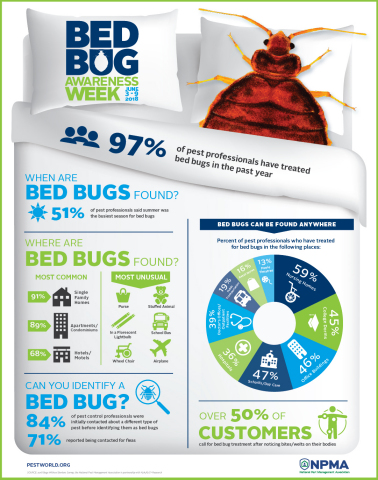The Role Of Bug Control In Food Safety And Hygiene
The Role Of Bug Control In Food Safety And Hygiene
Blog Article
Written By-Dickey Bork
Are you aware of the concealed threats that pests present to the safety and security and hygiene of your food? From rats to insects, these unwanted visitors can infect your ingredients, surfaces, and storage space locations.
House mouse discovers the critical function of parasite control in maintaining the highest possible standards of food safety and hygiene. Discover reliable methods and prevention steps that will certainly help you secure your company, consumers, and track record.
Do not let insects jeopardize the high quality of your food.
The Effect of Parasites on Food Safety and Health
In your kitchen, pests can have a substantial impact on food safety and hygiene. These undesirable visitors, such as rats, pests, and cockroaches, can pollute your food, surface areas, and utensils with damaging microorganisms, viruses, and parasites. They can conveniently access your kitchen, closets, and even your fridge, leaving droppings, urine, and hair.
Not just can they ruin your food by chewing with packaging, but they can also spread diseases like Salmonella, E.coli, and Listeria. Think of preparing a meal for your family, unaware that the ingredients you're utilizing are already contaminated.
It's important to take instant action to avoid and manage pests in your kitchen. Normal cleaning, correct food storage space, and expert pest control actions are necessary to guarantee food security and keep a sanitary setting in your kitchen area.
Reliable Insect Control Approaches for the Food Sector
Implementing reliable insect control techniques is important for maintaining food safety and security and health in the food sector. By carrying out just click the following article , you can protect against bugs from infecting the food and guarantee that your items are risk-free for consumption.
One effective approach is to regularly check and monitor your facility for signs of insect task. This consists of checking for droppings, nests, or any kind of damages triggered by bugs.
It's also important to secure all entrance points to prevent bugs from going into the facility. Routine cleansing and sanitation are vital, as insects are drawn in to food deposit and spills.
In addition, proper waste management is vital to avoid the build-up of food waste that can draw in bugs.
Keeping Hygiene Specifications Through Pest Avoidance Procedures
To keep health requirements, you must regularly execute insect avoidance actions. By taking positive steps to stop pests from entering your food facility, you can make certain the safety and security and tidiness of your properties. Below are some efficient bug avoidance actions to take into consideration:
- Seal all fractures and gaps: Pests can get in through even the smallest openings. Consistently evaluate and secure any type of spaces in doors, home windows, wall surfaces, and floorings to maintain insects out.
- Appropriate waste monitoring: Dispose of food waste immediately and firmly in sealed containers. This will lessen the attraction of parasites and stop invasions.
- Regular cleaning and sterilizing: Preserving sanitation in your facility is crucial. Frequently tidy and disinfect all locations, paying special focus to locations where insects may hide or reproduce.
- Implement a monitoring system: Routinely inspect your properties for indications of insect task. Install bug surveillance devices, such as catches or sensing units, to determine and deal with any kind of potential concerns beforehand.
Verdict
So bear in mind, when it pertains to food safety and security and health, parasite control plays a vital function.
By executing effective insect control strategies and safety nets, we can ensure the greatest requirements of tidiness and safety in the food market.
Don't allow bugs endanger the top quality of our food; allow's stand together and safeguard our wellness and health.
